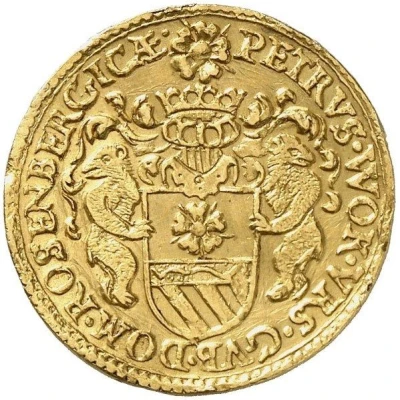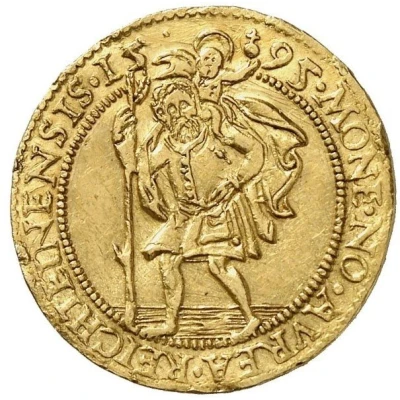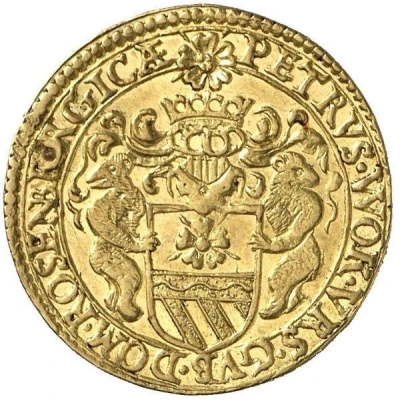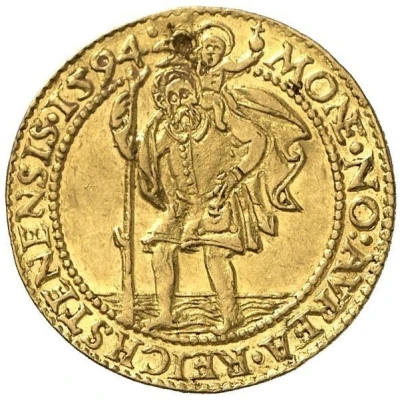


1 Ducat - Petr Vok of Rosenberg
1595 year| Gold | 3.5 g | 22 mm |
| Issuer | Rosenberg dominion (Kingdom of Bohemia) |
|---|---|
| Lord | Peter Vok of Rosenberg (1592-1611) |
| Type | Standard circulation coin |
| Year | 1595 |
| Value | 1 Ducat (2) |
| Currency | Thaler |
| Composition | Gold |
| Weight | 3.5 g |
| Diameter | 22 mm |
| Shape | Round |
| Demonetized | Yes |
| Updated | 2024-10-04 |
| Numista | N#366345 |
|---|---|
| Rarity index | 100% |
Reverse
Saint Christopher holding infant Jesus on left shoulder and staff in right hand, lettering around.
Script: Latin
Lettering: 95·MONE·NO·AVREA·REICHTEINENSIS·15·
Unabridged legend: Moneta Nova Avrea Reichsteinensis
Translation: New gold money of Reichenstein (Rychleby)
Comment
KH 42 (without snake)
Bibliography: Valdštejn 1793 p. 435, no. 203; Hanka 1837, no. 18; Miltner
– Neumann 1852–70 not listed; Saurma 1883 not listed; Donebauer
1888 not listed; Friedensburg – Seger 1901 not listed; Kopicki 1983 not
listed; Záplata 1994, no. 26.
Collections: Prague National Museum H5-36.320 (AV – 21·6 mm – 3·459 g
– bought from Mr. Joseph Vojta, Znojmo); Vienna Kunsthistorisches
Museum 15.400 (AV – 21·9 mm – 3·50 g).
KH 43 (with snake)
Bibliography: Hanka 1837 not listed; Miltner – Neumann 1852–70 not
listed; Saurma 1883 not listed; Donebauer 1888 not listed; Friedensburg
– Seger 1901 not listed; Kopicki 1983 not listed; Záplata 1994, no. 27.
Collections: Brussels Koninklijke Bibliotheek (AV – 21·4 mm – 3·23 g);
Frankfurt Deutsche Bundesbank (AV – 22·2 mm – 3·500 g); Pardubice
Východočeské museum (AV – ? – ?); Prague National Museum H5-
146.041 (AV – 21·9 mm – 3·482 g bought in 1968 for 2,500 crowns
from domestic art market); Prague National Museum H5-146.046 (AV
– 22·6 mm – 3·502 g – from Chaura Collection).
Interesting fact
One interesting fact about the 1 Ducat - Petr Vok of Rosenberg 1595 coin is that it features a unique design element - a small shield with the coat of arms of the Rosenberg family, which was added to the obverse (front) side of the coin. This shield was not present on earlier issues of the coin, and its inclusion on this particular coin is believed to have been a deliberate choice made by the mint master at the time, possibly to signify the importance of the Rosenberg family's influence in the region.

